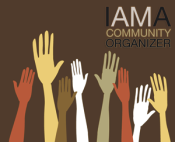This should surprise no one, since studies show that whites and Blacks have vastly different opinions about issues involving skin color, beliefs are often strongly-held as well as emotionally charged.
White people have picked up on Blacks' feelings, and they avoid sharing their potentially reprehensible opinions in conversations with Blacks, according to recent research, cited in a Fox News article.
Whites can't win with Blacks by avoiding mentioning skin color when skin color is obviously relevant, because we Blacks take their squeamishness as evidence that they are uncomfortable with Blacks in general, which is often true."Efforts to talk about race are fraught with the potential for misunderstandings," said researcher Evan Apfelbaum, a Ph.D. candidate at Tufts University. "One way that whites try to appear unbiased is to avoid talking about race altogether [particularly around people of a different skin color], a tendency we refer to as strategic colorblindness." Fox News
This just shows that color arousal is like any other mental illness: not talking about it, hiding it and pretending it doesn't exist doesn't make it go away, but can actually exacerbate it. At the same time, manifesting the illness of color aroused ideation, emotion and behavior by acting it out - in coversation or action - is not a welcomed alternative to simply trying to hide it. But, diagnosis and treatment is a good alternative.The tendency of some white people to go silent or act "colorblind" on the topic of race could do more harm than good, new research shows.
White people — including children as young as 10 — may avoid talkingabout race so as not to appear prejudiced, but that approach often backfires as black people tend to view this approach as evidence of prejudice, especially when race is clearly relevant.These results are from two separate sets of experiments led by researchers from Tufts Universityand Harvard Business School.
Their findings are reported in the October issue of the Journal ofPersonality and Social Psychology and the September issue of Developmental Psychology.The tendency of some white people to go silent or act "colorblind" on the topic of race could do more harm than good, new research shows. (See link above.)



No comments:
Post a Comment